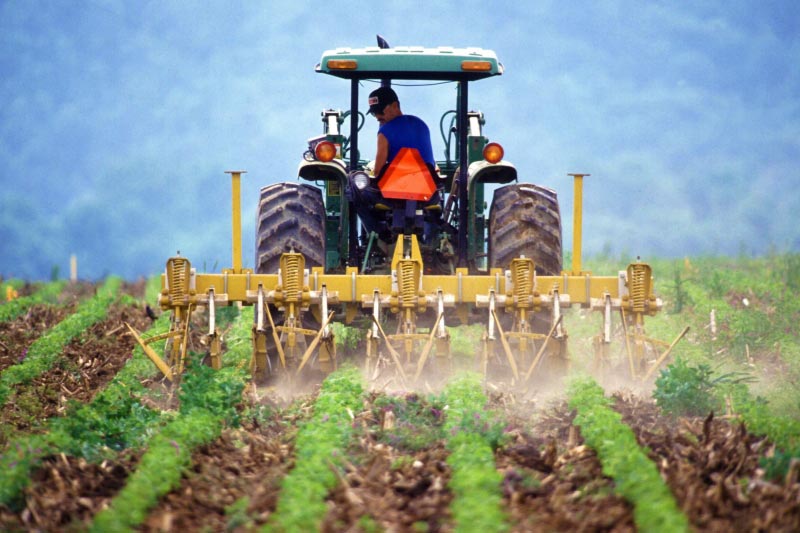IGFS in European climate-change project
Researchers from IGFS are joining researchers from over 70 organisations on a major European project to improve the modelling of climate-change impacts on agriculture and strengthen the interface between scientific research and policy.

In 2012, MACSUR was initiated by the Joint Programming Initiative on Agriculture, Climate Change and Food Security (FACCE-JPI), to bring together researchers from different organisations with expertise in modelling:
- grasslands
- livestock
- crops
- farms
- agricultural trade.
Together they:
- improved the modelling of climate change impacts on European agriculture
- illustrated to political decision makers how climate will affect regional farming systems and food production in Europe.
Answering complex questions
MACSUR established integrated and interdisciplinary models able to answer more complex questions by linking complementary models from different sectors.
Additionally, its work led to:
- the training of more than 30 PhD students
- over 100 peer reviewed publications on modelling food security
- engagement with a wide array of stakeholders
- established a community of best practice across a range of scientific disciplines.
Climate change collaboration
Building on the success of MACSUR, the next phase launched in June 2021, the MASCUR Science-Policy (MACSUR SciPol) Knowledge Forum.
The 18-month pilot project will build on the achievements of MACSUR and focus on strengthening the science-policy interface by addressing key policy questions of the eight participating core group countries:
- UK
- Austria
- Germany
- Denmark
- Italy
- Ireland
- Hungary
- Netherlands.
These questions, categorised into adaptation, mitigation and impacts, all address the emission reduction targets for 2030 and carbon neutrality by 2050 as outlined under the:
- European Green Deal (European Commission)
- Paris Agreement (United Nations Climate Change)
- FACCE-JPI core themes.
Addressing emission reduction strategies
In more detail, the hub will address emission reduction strategies linked to:
- livestock
- cropping and aquaculture systems
- carbon sequestration
- consumer preferences
- conflicting land demands
- agricultural and consumer measures to adjust to the effects of different climatic conditions
- assessing ecosystem services and biodiversity
- human and animal health
- rural development
- equity
- the global footprint, spill over, and rebound effects on food and nutrition security.
The hub is being brought together by:
- Biotechnology and Biological Sciences Research Council (BBSRC)
- Modelling Agriculture with Climate Change for Food Security (MACSUR) knowledge hub.
BBSRC’s involvement in MACSUR and MACSUR SciPol, enables UK modellers to shape the European modelling community and build a strong network.
For its continued involvement in MACSUR SciPol, BBSRC works closely with policy makers at Defra and provides funds for an early-career researcher at Queen’s University Belfast.
The researcher will work on the science-policy interface to address key policy questions and strengthen the modelling community in the UK and across Europe.
What are agricultural systems modelling?
Models are simulations, virtual experiments, that incorporate real data from past experiments and predicted data.
Models are extremely useful for decision making and to assess the impacts of different future scenarios.
The method also provides different ways in which countries can identify the inputs that will achieve a more sustainable agriculture system.
Climate change continues to affect agriculture, threatening European food and nutrition security.
Challenging food systems
Higher temperatures, increased numbers of extreme events such as droughts or floods and a shift in seasons are challenging our current food systems.
Finding ways of adaption, mitigation or addressing the impacts of these changes are needed now.
Agricultural modelling equips scientists with a detailed understanding of general interactions of:
- soil
- plants
- the atmosphere.
Using modelling, field trial experiments can be designed, and results analysed in a matter of minutes.
